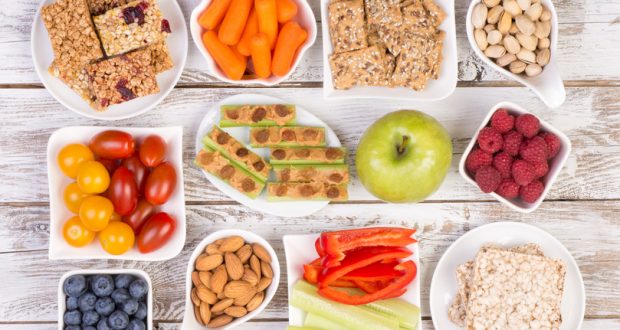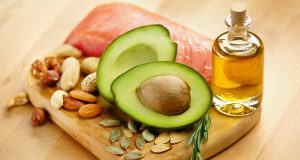Meals vs. snacks – do you view them differently?
Is a “snack food” more likely to be something that spikes your blood sugar? Do you try harder to make better choices for “meals” or are they an excuse to enjoy larger portions than you should?
The way we perceive snacks and meals can make a huge impact on not only blood sugar, but on overall health. New research has found that foods marketed as “snacks” were far more likely to prompt over-consumption and continuous eating than foods marketed as “meals.”
Think about it – snacks give us permission to eat at non-traditional mealtimes. We all know breakfast is in the morning, lunch is in the afternoon, and dinner is at night… snacks however, have become any time free-for-all opportunities to chow down.
In the study, participants who ate the “snack” vs. the “meal” not only consumed more food, but had a more difficult time recalling what they ate (and how much they ate) afterward.
In these instances, snacking was equivalent to “mindless eating.” Talk about destructive and dangerous eating habits!
Snacking is not evil, and does not have to negatively affect blood sugar. A snack’s purpose is to prevent excessive hunger, give the body an energy boost, and even help to regulate blood sugar.
It’s important to listen to your body; when it needs a little boost, you’ll know. Some people are ravenous first thing in the morning, and after eating a large breakfast may not need a snack before lunch. Others may eat something small when they wake up, and need a little boost mid-morning.
Don’t let yourself get hungry. This is especially important for diabetics. When you skip a meal, your blood sugar will drop. As soon as you put the first bite of anything in your mouth, your sugar will rise.
If what you put in your mouth contains sugar (real or artificial) your blood sugar will skyrocket. This can be very dangerous, and can have a lasting impact on your health.
It’s important to choose a snack that will give you the energy you need without spiking your blood sugar. Combine protein, fats, and carbohydrates to get the most out of your snacks.
For example, trade in that whole banana for a bowl of berries and Greek yogurt. Or apple slices over cottage cheese with a sprinkle of cinnamon. (When it comes to yogurt and cottage cheese, be sure to choose the full-fat versions to increase the good fats and decrease the sugar.)
Everybody craves a bag of salty potato chips around 2:30 in the afternoon, am I right? Well as delicious as they may be, (and easily obtained from the vending machine down the hall), they will do your body no favors.
Instead of those potato chips, try air-popped popcorn or a few kale chips. If a kale chip isn’t your thing, how about this recipe for pepperoni chips! Or, a full-fat string cheese with a handful of pistachios, cashews, or almonds.
Some thinly sliced veggies accompanied by a nice hummus or pesto dip won’t weigh you down as the afternoon drags on. You can dip pretty much anything into this cool and creamy avocado dip.
For even more ideas, check out this link to Diabetic Kitchen’s Quick Snack Ideas for Diabetics. With recipes for spiced nuts, guacamole dip, berries in cream, and mini-egg bakes, this page makes smart snacking easy!
Sources:
https://www.sciencedaily.com/releases/2017/10/171030095416.htm
 Diabetic Kitchen
Diabetic Kitchen





Recent Comments